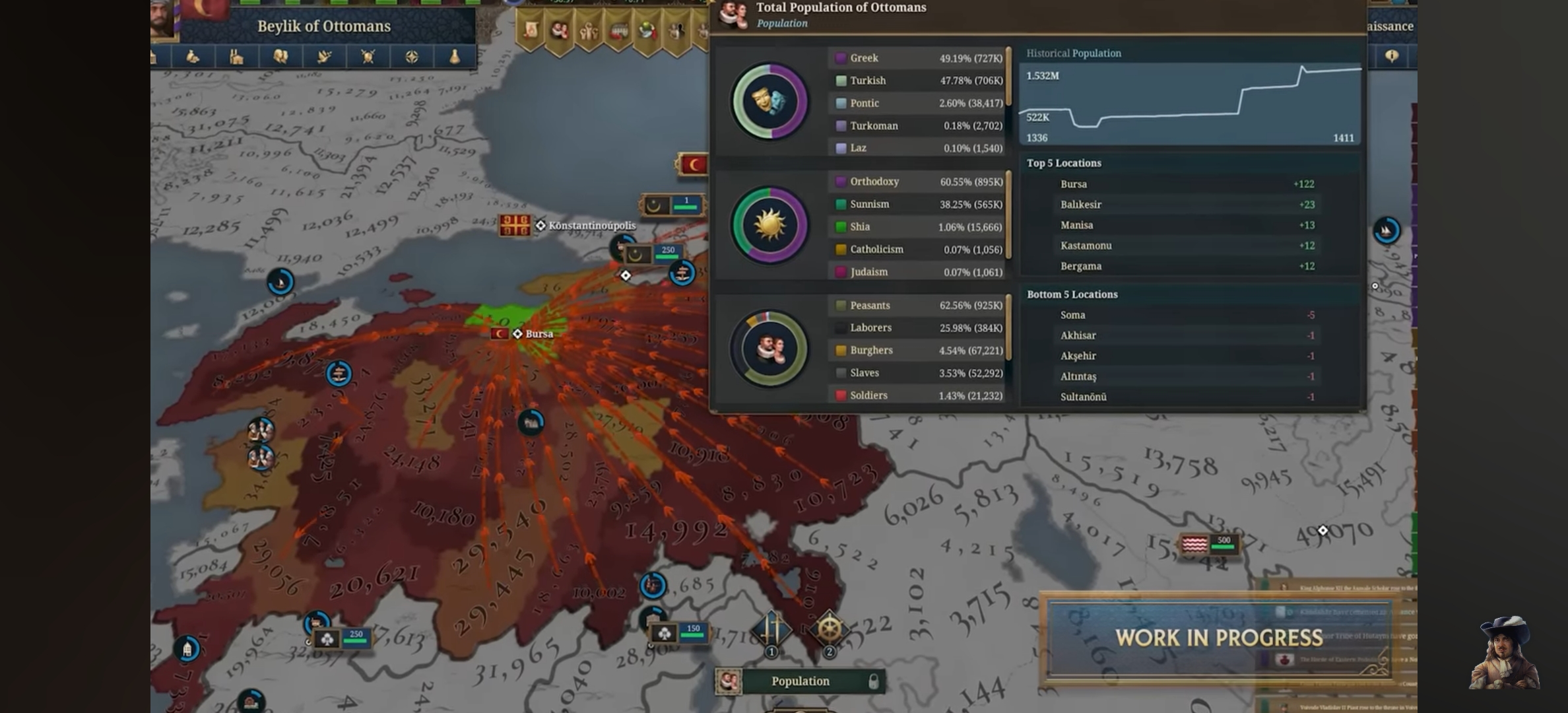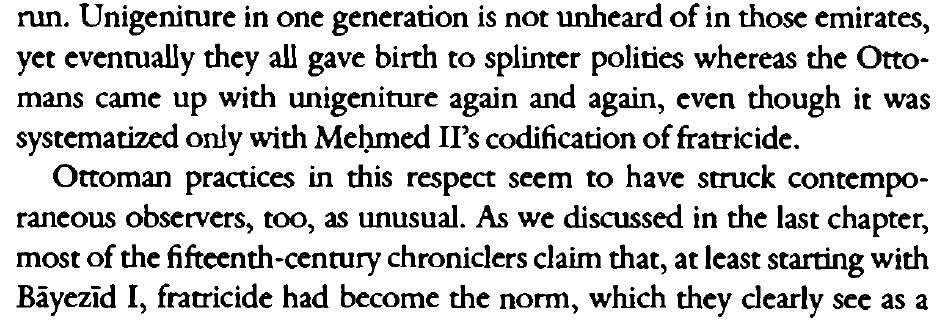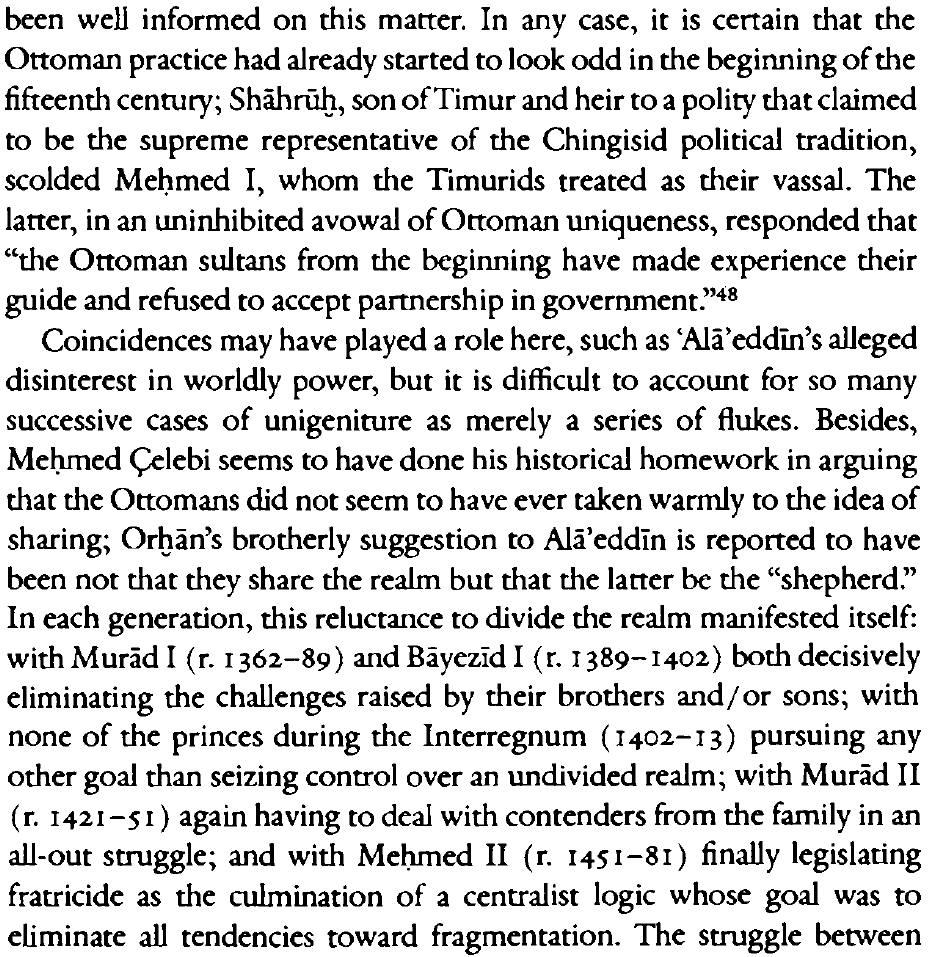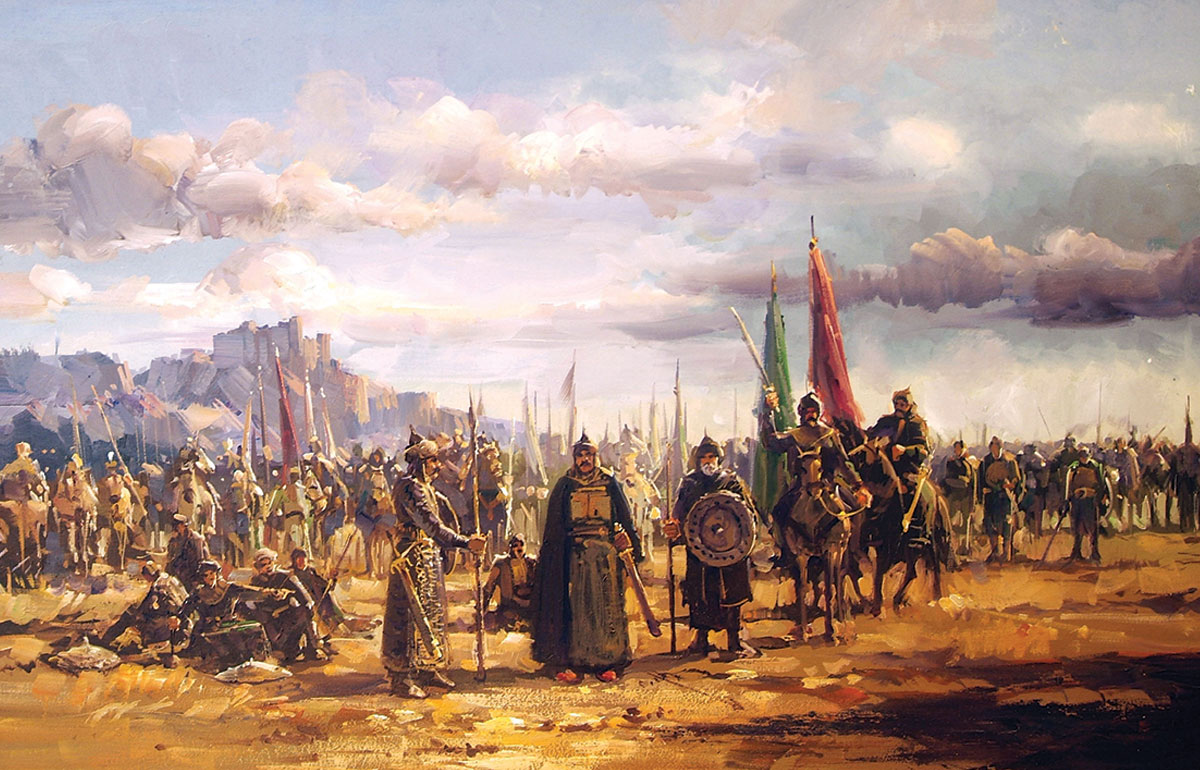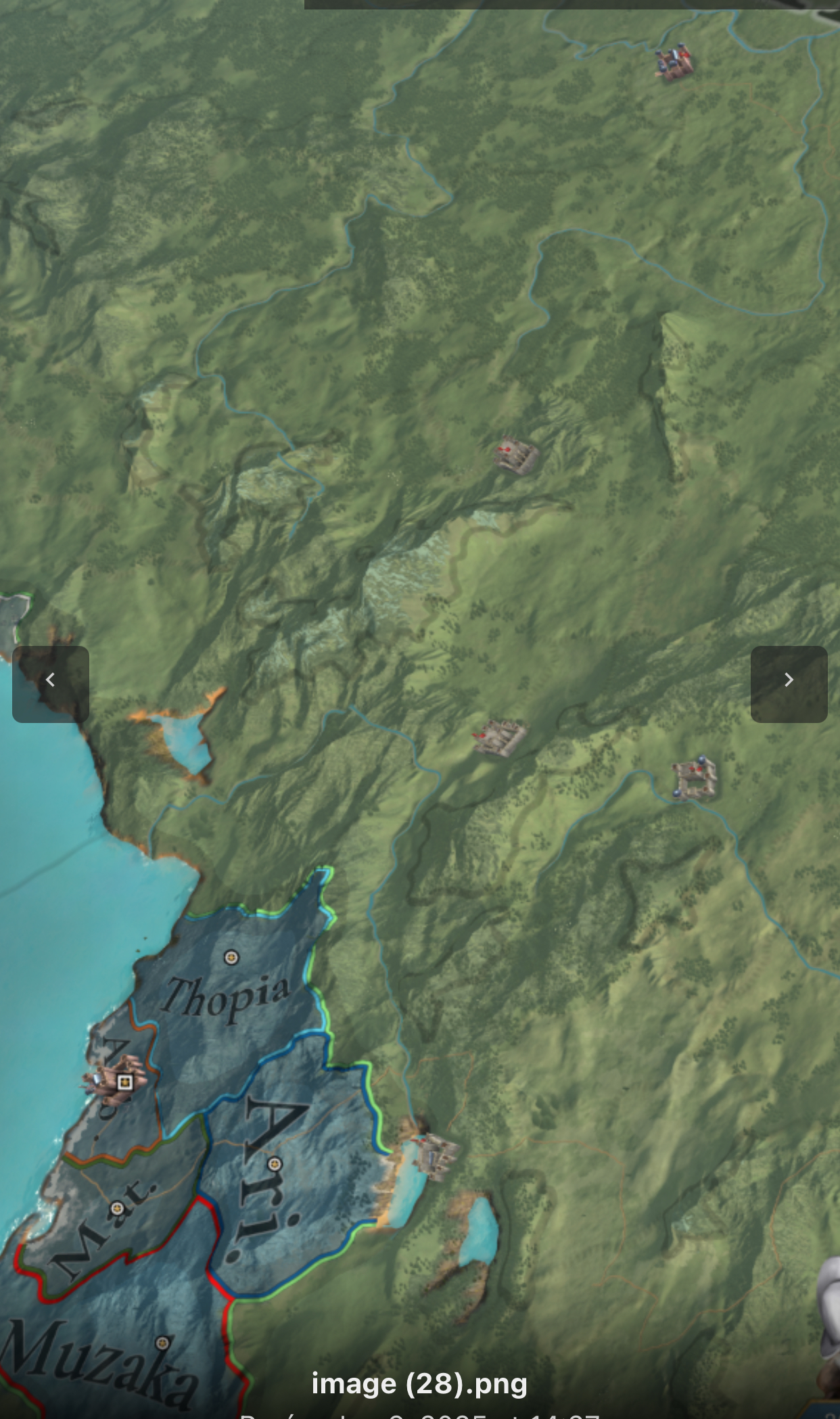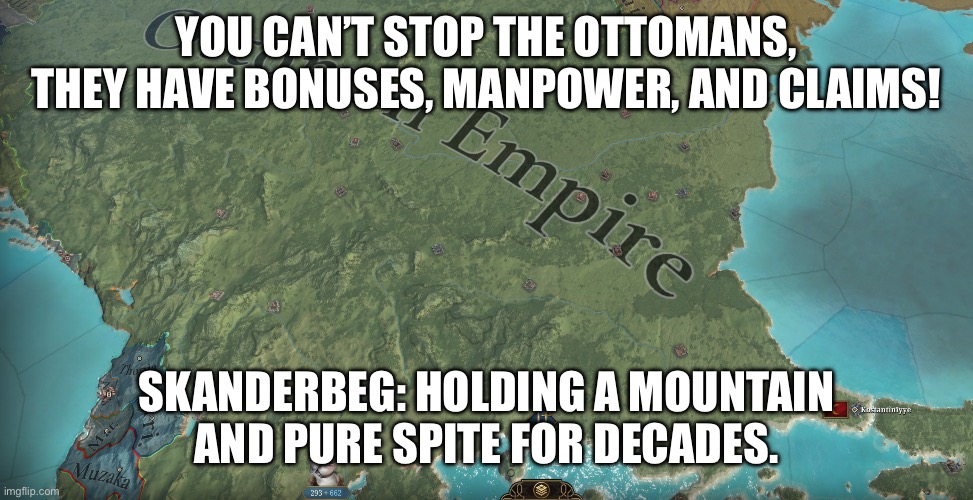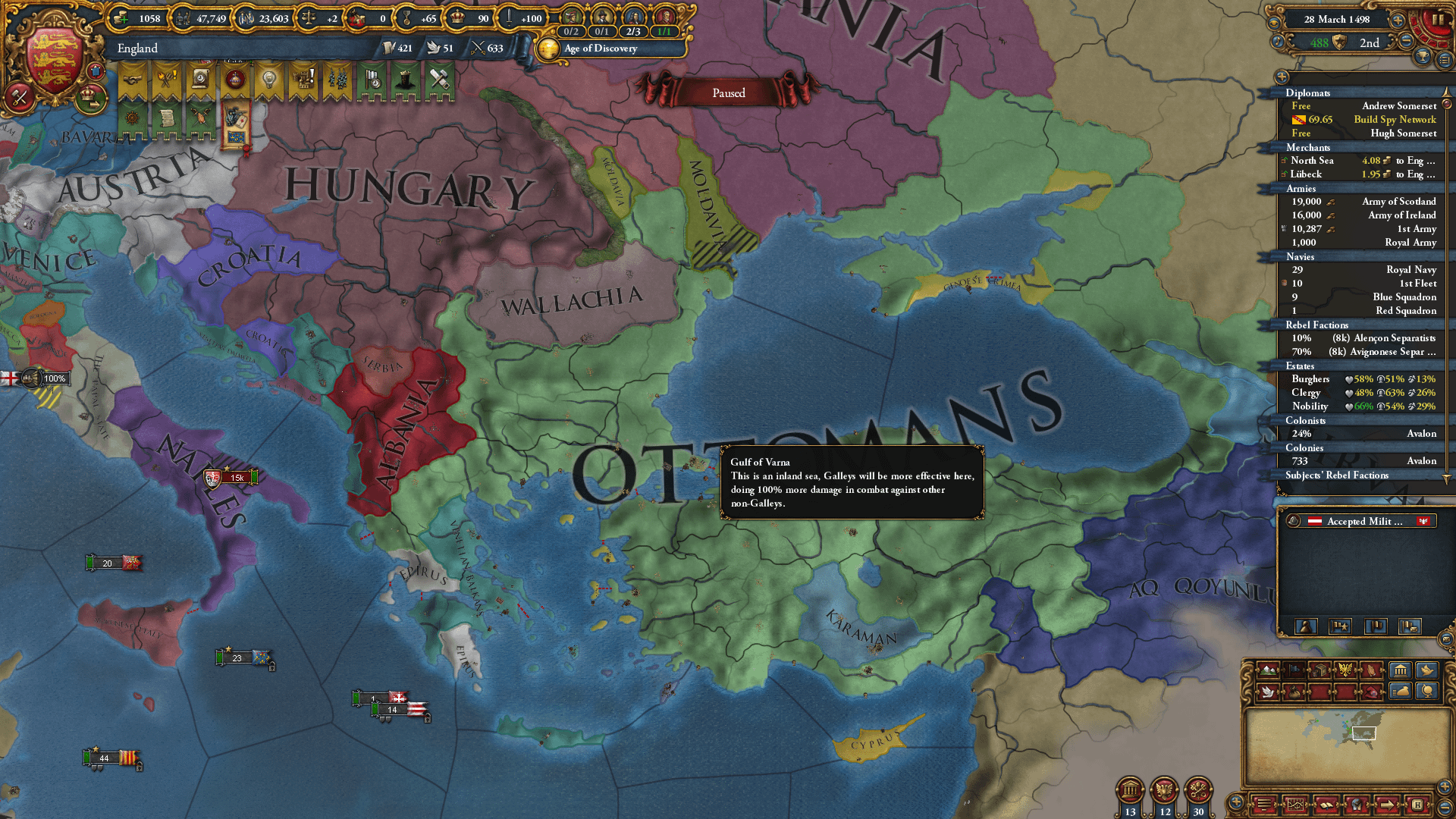Hello, and welcome one more Friday to Tinto Flavour, the happy days in which we take a look at the flavour content of Europa Universalis V!
Today, we will take a look at the flavour content for the Ottomans, one of our Tier 1 countries, the Turkish Beliks in general, and the Rise of the Turks situation, in which all of them are involved!

As usual, please consider all UI, 2D and 3D art as WIP.


A lovely day in 1337 on the coast of the Bosphorus…
The Ottomans, like the other Anatolian Beyliks, start with some Reforms and Privileges, of which some are unique:




They also start with a unique and troublesome succession law:

And this policy:

These are some of the advances available, which you may notice are quite relevant:











Although the most important advances for the Ottomans are:




There’s a different Janissary unit available in each age; for example, this is the one available for Age of Reformation:

This is very relevant, as the key flavour content for the Ottomans, and the rest of the Anatolian Beyliks, is a situation that triggers a couple of months into the game; I'll let one of our Content Designers, @PDXBigBoss :
.png)
The situation focuses on the rise of the Ottomans, in most cases. However, this does not mean that another Beylik cannot take their place, with their own unique flavor, reforms, and outcomes!
.png)
This unique reform is granted to the strongest Beylik, if they are the Ottomans.
.png)
This reform is only available for the Strongest Beylik, if they are NOT the Ottomans!
This is the panel of the situation. Many countries, beyond the "Strongest Beylik" can play a part in it, the ever-shifting environment of politics, diplomacy, and eventual war. While the Strongest will gain access to a few unique actions, most actions are available to any Beylik.
.png)
The Ottomans are by far not domineering across the region, let alone beyond it, in 1337. Foreshadowing or…?
.png)
.png)
Location Importance is a composite metric, tailored specifically to the Situation. It depends on many factors such as development, market access, road connectivity, and more. This is used to determine the volume of certain bonuses and utilizes a nice little “game concept” tooltip to explain its application and usage.
.png)
.png)
As the Strongest Beylik consolidates holdings with a majority of Greek Culture, this event will appear, heralding the beginning of a great Turkic Migration. It enables a unique action for our country to call upon Turkic migration from the East, to populate the coasts of the Aegean Sea and Anatolia. Historically, this was very vital and it carries the same importance in-game, as having a majority of our culture in locations will allow us to fully core them, thus increasing our control!
The number of migrants that will travel is dynamically balanced. The pops will always come from a province with an ample population, and the amount of pops will always be "relevant" to the target province we are trying to populate:
.png)
And a nice little short-term modifier to ensure a swifter cultural integration
Once the strongest Beylik consolidates themselves, and crosses the Dardanelles, the Press Claims action will evolve, allowing the Beylik to declare war through a good Casus Belli across the Balkans, as well, posing a direct threat to the Kingdoms that populate that region:
.png)
Once the player conquers 300 locations, including at least 30 urban locations, and we own Konstantiniyye, we will be greeted by this event, which heralds in the Classical Era of your (now) Empire. In most cases, this will be the Ottomans.:

This event will also grant us the rank of Empire, which comes with significant bonuses and some double edges in the form of a unique disaster for Empires…
.png)
But what happens if the Karamanids or another rises, instead? They are greeted by a different outcome, a choice. They will be able to adopt the Ottoman tag, inheriting the Ottoman content, events, reforms, everything they have to offer, whilst still holding on to their flag, name, color on the map, dynasty, history, etc. However, should you choose not to do this, you will be able to reform the Sultanate of Rum....
Moreover, other Beyliks across Anatolia have dedicated flavor content to themselves. The Germiyanids, Aydinids, Eretnids will have a few events associated with their history in the middle of the 14th century, onwards.
.png)
Germiyanids Ruler perishes, who is 79 at game start. A nasty event, reminiscent of Shah Rukh
.png)
The Eretnids are displeased with Jalayrid rule, trouble steers!
.png)
On top of that, the Ottomans have around 200 DHEs, making it a proper Tier 1 country in terms of flavor…
… And much more, but that’s all for today, as it’s already very long! As today is Friday, this will be the schedule for next week, which will be completely on @Roger Corominas , as I’ll be off:
And also remember, you can wishlist Europa Universalis V now! Cheers!
Today, we will take a look at the flavour content for the Ottomans, one of our Tier 1 countries, the Turkish Beliks in general, and the Rise of the Turks situation, in which all of them are involved!

As usual, please consider all UI, 2D and 3D art as WIP.


A lovely day in 1337 on the coast of the Bosphorus…
The Ottomans, like the other Anatolian Beyliks, start with some Reforms and Privileges, of which some are unique:




They also start with a unique and troublesome succession law:

And this policy:

These are some of the advances available, which you may notice are quite relevant:











Although the most important advances for the Ottomans are:




There’s a different Janissary unit available in each age; for example, this is the one available for Age of Reformation:

This is very relevant, as the key flavour content for the Ottomans, and the rest of the Anatolian Beyliks, is a situation that triggers a couple of months into the game; I'll let one of our Content Designers, @PDXBigBoss :
.png)
.png)
This unique reform is granted to the strongest Beylik, if they are the Ottomans.
.png)
This reform is only available for the Strongest Beylik, if they are NOT the Ottomans!
This is the panel of the situation. Many countries, beyond the "Strongest Beylik" can play a part in it, the ever-shifting environment of politics, diplomacy, and eventual war. While the Strongest will gain access to a few unique actions, most actions are available to any Beylik.
.png)
The Ottomans are by far not domineering across the region, let alone beyond it, in 1337. Foreshadowing or…?
.png)
- Press Claims - The ability of the Strongest to fabricate a claim against an enemy in Anatolia.
- Raise a Bey Fortress - It's a unique building that increases the Fort Level of a location and produces an ample, steady supply of manpower, much earlier than many other countries can. It can only be built in cities across Anatolia. Upon its construction, you will be greeted by a positive event, whose historical information is tailored specifically to the location you build it. This means that it will be different if you build it in Bursa, Izmit, Konya, Smyrna, etc... While this is good and all, these fortresses are a symbol of authority, for better or worse. This means that if a location with a Bey Fortress gets sieged down, you will suffer a blow to the stability and legitimacy of your rule, and your people will lose faith in your ability to win the war. The maluses will be far worse should the enemy even annex that location, so be careful…
.png)
Location Importance is a composite metric, tailored specifically to the Situation. It depends on many factors such as development, market access, road connectivity, and more. This is used to determine the volume of certain bonuses and utilizes a nice little “game concept” tooltip to explain its application and usage.
- Seek Relations with the Byzantines - as long as the Romans hold Constantinople, and they are "relevant" any Beylik that is strong enough will be able to leverage diplomacy to extract gifts from the Empire. These gifts may be the hand of a daughter in marriage, ample coin, the recognition of a Beylik as legitimate sovereign of Anatolia, or the demand of capable characters to prop up your administration in exchange for relations and good faith. They can - and often do - decline, but are they really in a position to barter ?
- Offer Diplomatic Protection - through marriage, the exchange of territory and diplomacy, as any Beylik we can offer an alliance and guarantees of sovereignty to another lesser Beylik. Of course, history has shown such friendships are short-lived…
- Create Uc Bey - A unique subject type for the duration of the situation. A powerful weapon when used appropriately, the Uc Bey guards the frontier of the Beylik against foreign threats. They will be an army-based country with a powerful Government Reform, making them the perfect guardians. However, you will need to integrate them and centralize later on, should you survive and come out on top after the situation ends…
- Anatolia in 1337 is traversed by a Great Trunk Road, controlling important points across it (Konya, Sivas, etc) unlocks a scaling Estate Privilege for your Merchant Estate, let's take a look:
.png)
The privilege will grant 1% Trade Efficiency for each of these locations that we control directly…
- Konya and Sivas are also home to Seljuk Mints, which were used by the former Sultanate to produce coinage and project an aura of legitimacy and authority. Owning and developing these locations will be vital when it comes to spreading our Control across the region through a unique building…
.png)
.png)
As the Strongest Beylik consolidates holdings with a majority of Greek Culture, this event will appear, heralding the beginning of a great Turkic Migration. It enables a unique action for our country to call upon Turkic migration from the East, to populate the coasts of the Aegean Sea and Anatolia. Historically, this was very vital and it carries the same importance in-game, as having a majority of our culture in locations will allow us to fully core them, thus increasing our control!
The number of migrants that will travel is dynamically balanced. The pops will always come from a province with an ample population, and the amount of pops will always be "relevant" to the target province we are trying to populate:
.png)
And a nice little short-term modifier to ensure a swifter cultural integration
Once the strongest Beylik consolidates themselves, and crosses the Dardanelles, the Press Claims action will evolve, allowing the Beylik to declare war through a good Casus Belli across the Balkans, as well, posing a direct threat to the Kingdoms that populate that region:
.png)
Once the player conquers 300 locations, including at least 30 urban locations, and we own Konstantiniyye, we will be greeted by this event, which heralds in the Classical Era of your (now) Empire. In most cases, this will be the Ottomans.:

This event will also grant us the rank of Empire, which comes with significant bonuses and some double edges in the form of a unique disaster for Empires…
.png)
But what happens if the Karamanids or another rises, instead? They are greeted by a different outcome, a choice. They will be able to adopt the Ottoman tag, inheriting the Ottoman content, events, reforms, everything they have to offer, whilst still holding on to their flag, name, color on the map, dynasty, history, etc. However, should you choose not to do this, you will be able to reform the Sultanate of Rum....
Moreover, other Beyliks across Anatolia have dedicated flavor content to themselves. The Germiyanids, Aydinids, Eretnids will have a few events associated with their history in the middle of the 14th century, onwards.
.png)
Germiyanids Ruler perishes, who is 79 at game start. A nasty event, reminiscent of Shah Rukh
.png)
The Eretnids are displeased with Jalayrid rule, trouble steers!
.png)
On top of that, the Ottomans have around 200 DHEs, making it a proper Tier 1 country in terms of flavor…
… And much more, but that’s all for today, as it’s already very long! As today is Friday, this will be the schedule for next week, which will be completely on @Roger Corominas , as I’ll be off:
- Monday -> Tinto Maps Feedback about Japan & Korea
- Tuesday -> Tinto Flavour about Korea & Manchuria
- Wednesday -> Tinto Talks about the Shinto religion & Shogunate IO
- Thursday -> ‘Behind the Music of Europa Universalis V - Composing the Grandest Score’ video!
- Friday -> Tinto Flavour about Japan & the Nanboku-chō Jidai & Sengoku Jidai situations
And also remember, you can wishlist Europa Universalis V now! Cheers!



.png)

